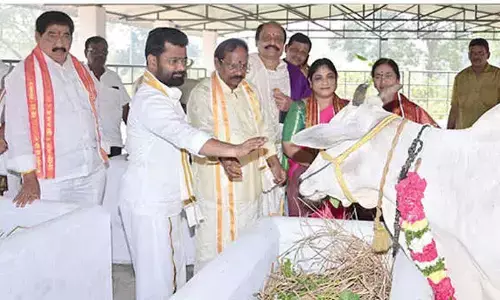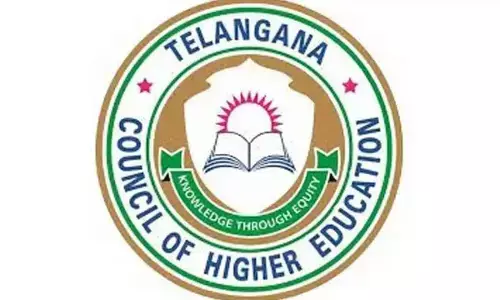Four-year degree course : Merits and demerits

We have been toying with the idea of a four-year degree course for quite some time with little progress because many of our stakeholders as well as the academia have not seen the true benefits of it. Truly, what could be more disappointing than acquiring a degree after four years instead of three and without anything unique or extraordinary about it? Evidently that is how many parents and students in our country view the four-year undergraduate programme, merely a whim of the educationists, a poor gap-filler to meet the 16-year educational requirement for pursuing any postgraduate courses abroad, and at the most a facelift to the drab courses to make them look 'professional' on par with engineering and medicine. That is why the developments in the Delhi University have generated mixed responses and are catching national interest.
In June, the Hindustan Times said that the craze for admissions to Delhi University, even for the 4-year course seemed to have caught up with students. Many papers referred to the four-year undergraduate programme of DU as a 'step to help students improve their entrepreneurial expertise and the chance to get better jobs'. DU's faculty reiterated its positive impact: It is designed for students' 'all-inclusive growth and inter-disciplinary understanding' and the course has several benefits. For example, it will help students, who have done B.Com, to either pursue M.Com or MA in Economics, History and Political Science, depending on their Discipline Course I and Discipline Course II. These changes will help them gear up for the job market.
However, in this month's developments, we read 'Four-year DU course challenged in court'! Terming the Delhi University's new undergraduate programme (FYUP) as "illegal", a group of legal professionals moved the Delhi High Court on Wednesday to demand "uniformity in education" across the country. The plea said that the proposed degrees which the university would award after the completion of FYUP were not recognized by the University Grants Commission (UGC).
The introduction of four-year undergraduate programme (FYUP) by DU will lead to "disparities in the education system". It will upset the equilibrium required for all-round development in education. The petitioners asked the court to declare that the National Policy on Education which, till date, has not been superseded was mandatory and binding upon Delhi University too. Acting Chief Justice BD Ahmed and Justice Vibhu Bakhru would now take up the matter on July 17.
In this context, I wish to share my observations of the American education system at the undergraduate level, based on my interaction with our Indians like Professor Ranga, Prof. Rao and others who have Indian roots, experience in teaching in Indian universities and who have now moved to the US �I visited at least five or six of the 12 universities in a radius of 100 kilometers around Cincinnati. Both as parents keen on selecting a good college for their children and as professors in the field, these gentlemen shared their experiences and observations on the advantages of a four-year course as being implemented in the U.S along with the level of transparency these institutions maintain in many aspects right from admission procedure to the declaration of results.

Some highlights of their 4-year degree programme are: In their credit-based system where students can be confident of admission into reputed universities only if they score not less than 32 out of 36 credits, at least 30% of the credits must be from a non-major area and it is a must for students from science streams to get credits in humanities and vice versa. Such an arrangement makes education complete or holistic instead of lopsided. The interdisciplinary approach creates awareness in other fields.
As tomorrow's research is more multidisciplinary, this 4-year course forms a good foundation. Moreover, writing research articles, making references, honing the scholarly writing skills becomes a natural part of these courses which Indian student community lacks. Unless we are ready to adapt and experiment, how can we taste better results? We accept in word that 21st century education and skills to face and solve 21st century problems cannot be achieved by adhering to 20th century models of education, but why do we shudder to take the leap of faith and welcome positive innovative measures? Our dead habits and biased reason seem to be our manacles.
We have experimented with 10+2+3 courses and if we wish to give the advantages of 10+2+4 to those who are willing to benefit, let us not create issues. Our engineering course is of a four-year duration and we know that there is very little window for onsite experience or firsthand exposure to the fields where they intend to be employed. Why don't we acknowledge that this is one of the reasons for our inability to see that they are absorbed into some suitable employment worth their qualifications? In the US, the engineering course stretches to 5 years and, of it, it is compulsory to work for 18 months in an industry. Moreover, students opt for a dual admission which gives them the choice to opt out of one course later.
So, the attrition rate may be high, nearly 50% to say the least, but those who reach their final year are those who really are interested in the course. Right from the beginning, it is not parental pressure or peer pressure which can decide the career choices in the US. Every aspirant for an engineering admission must write two essays of 2 pages each on why he plans to be an engineer and why he wishes to seek admission in that specific college for a selected branch. The experts disqualify any applicants who they doubt have taken their parents' support or any external support in writing these essays. So, clearly, the intention of this exercise is to make the student have a good idea of the field he plans to pursue as well as the kind of educational environment he seeks to enter.
It is as a preparation for this that right in their 11th class, students, along with their parents, visit at least 10 to 12 colleges to which they think of applying for admission. The parents' accompanying their ward is a mark of their interest in his future but not an indication of their influence on the child's decision. As it is essential for every student to stay 'away from home' during graduation at least for one year, it is but justified to support the child's preferences after seeing what he is about to enter. The college accreditation reports, teacher evaluation reports, suggestions by alumni or 'legends' are all accessible to the visiting parents.
Sometimes I wonder if we are compromising quality for the sake of releasing more and more graduates every year. If so, whom are we deceiving but ourselves? Nothing of quality can be earned in life without proper planning, adequate preparation and sufficient time to blossom. If it takes 5 years to mould a good engineer, so be it; if it takes 4 years to bring out a graduate with good foundation in all essentials, so be it; if it takes 4+5 years to educate and train a good physician, so be it . We all know that it takes very strong will and conviction to think out of the box, do away with the pattern we have been following and introduce something unconventional which is often unacceptable to the public. But as decision- makers having the long-term benefits of the nation in mind, it becomes essential to enforce positive changes, educate the public in advance and be on constant vigil for the success of the new courses and plans.
Chukka Ramaiah















